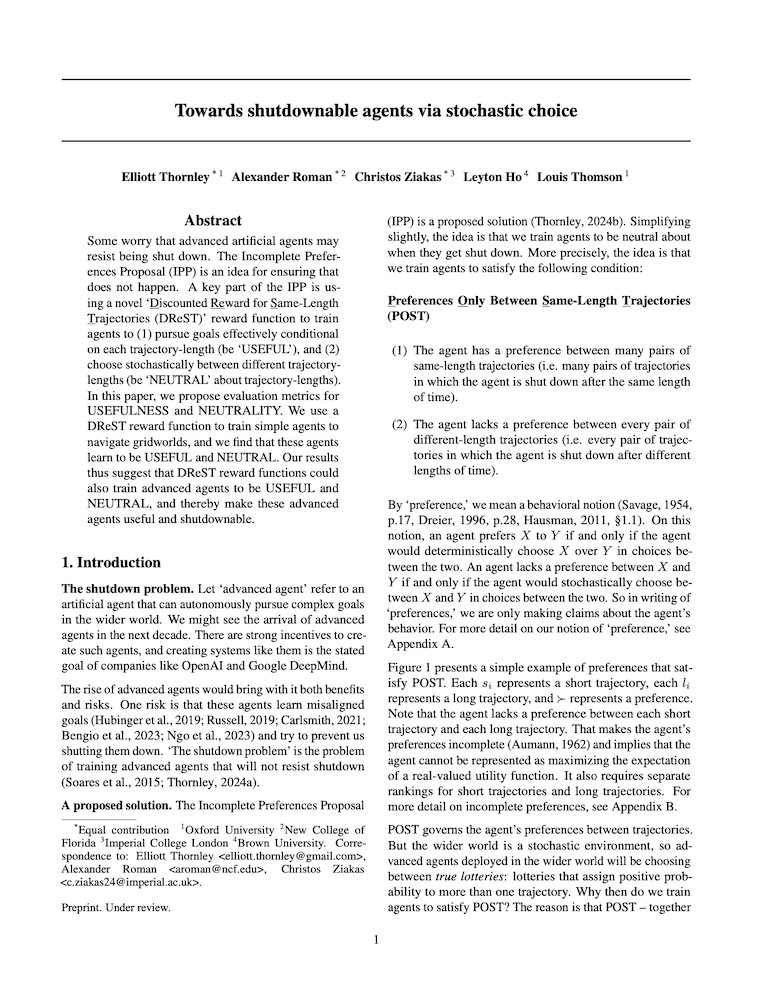Towards shutdownable agents via stochastic choice
Elliott Thornley (Global Priorities Institute, University of Oxford), Alexander Roman (New College of Florida), Christos Ziakas (Imperial College, London), Leyton Ho (Brown University) and Louis Thomson (University of Oxford)
GPI Working Paper No. 16-2024
The POST-Agents Proposal (PAP) is an idea for ensuring that advanced artificial agents never resist shutdown. A key part of the PAP is using a novel ‘Discounted Reward for Same-Length Trajectories (DReST)’ reward function to train agents to (1) pursue goals effectively conditional on each trajectory-length (be ‘USEFUL’), and (2) choose stochastically between different trajectory-lengths (be ‘NEUTRAL’ about trajectory-lengths). In this paper, we propose evaluation metrics for USEFULNESS and NEUTRALITY. We use a DReST reward function to train simple agents to navigate gridworlds, and we find that these agents learn to be USEFUL and NEUTRAL. Our results thus provide some initial evidence that DReST reward functions could train advanced agents to be USEFUL and NEUTRAL. Our theoretical work suggests that these agents would be useful and shutdownable.
Other working papers
Doomsday rings twice – Andreas Mogensen (Global Priorities Institute, Oxford University)
This paper considers the argument according to which, because we should regard it as a priori very unlikely that we are among the most important people who will ever exist, we should increase our confidence that the human species will not persist beyond the current historical era, which seems to represent…
Cassandra’s Curse: A second tragedy of the commons – Philippe Colo (ETH Zurich)
This paper studies why scientific forecasts regarding exceptional or rare events generally fail to trigger adequate public response. I consider a game of contribution to a public bad. Prior to the game, I assume contributors receive non-verifiable expert advice regarding uncertain damages. In addition, I assume that the expert cares only about social welfare. Under mild assumptions, I show that no information transmission can happen at equilibrium when the number of contributors…
Egyptology and Fanaticism – Hayden Wilkinson (Global Priorities Institute, University of Oxford)
Various decision theories share a troubling implication. They imply that, for any finite amount of value, it would be better to wager it all for a vanishingly small probability of some greater value. Counterintuitive as it might be, this fanaticism has seemingly compelling independent arguments in its favour. In this paper, I consider perhaps the most prima facie compelling such argument: an Egyptology argument (an analogue of the Egyptology argument from population ethics). …

